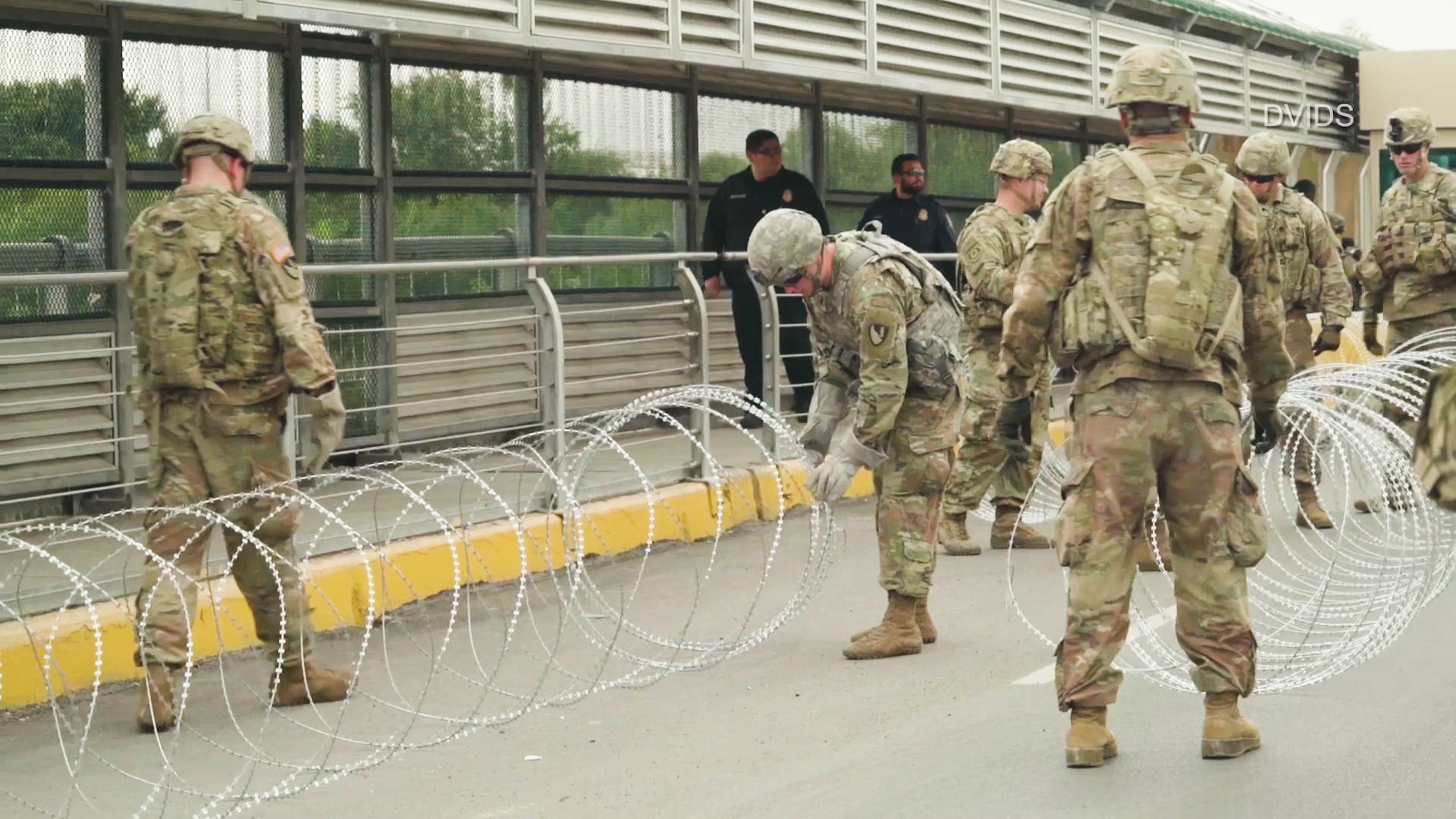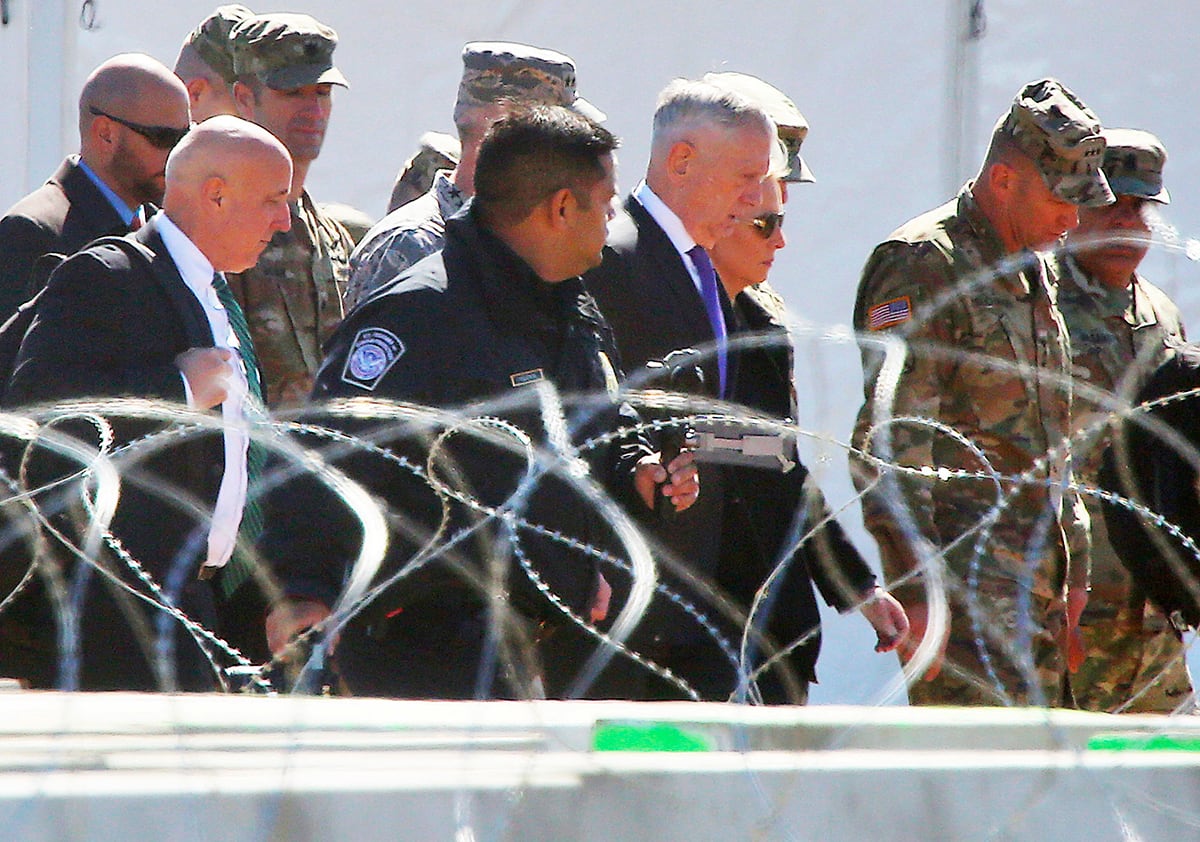Hours after the White House signed a late Tuesday night directive expanding the authorities of U.S. troops at the Mexican border, Defense Secretary Jim Mattis met with reporters at the Pentagon to explain what the new policies mean for the domestically deployed forces.
The memo, which was signed by White House Chief of Staff John Kelly, instructs Mattis that all “Department of Defense military personnel” may “perform those military protective activities that the Secretary of Defense determines are reasonably necessary to ensure the protection of federal personnel, including a show or use of force (including lethal force, where necessary), crowd control, temporary detention and cursory search. Department of Defense personnel shall not, without further direction from the President, conduct traditional civilian law enforcement activities.”
On what’s changed:
Mattis said Wednesday that while the authorities for U.S. troops along the border have expanded, the Standing Rules for the Use of Force for troops deployed to the border have not changed — unless he decides they need to.
The memo directs Mattis to decide which authorities border troops may need to carry out their duties.
“If I change the mission then something like that could happen,” Mattis said. “We have no intent of doing that right now.”
Mattis said any use of the new authorities would be shaped by what follow-on requests he gets from Department of Homeland Security Secretary Kirstjen Nielsen.
“I now have the authority to do more,” Mattis said. “Now we’ll see what [Nielsen] asks me for.”
RELATED

On use of force:
While the memo authorizes up to the lethal use of force, Mattis emphasized that the vast majority of forces on the border are not armed and would stay that way. Use of force would be carried out by “unarmed MPs” using shields and batons, he said.
“There is no armed element going in,” Mattis said.
“We are not doing law enforcement. We do not have arrest authority,” Mattis said. “Now the governors could give their [National Guard] troops arrest authority — I don’t think they’ve done that — but there is no arrest authority under Posse Comitatus for the U.S. federal troops. That can be done but it has to be done in accordance with the law.

On detention:
The memo authorizes troops to be used to provide “temporary detention and cursory search,” something they are not allowed to do under Posse Comitatus. Mattis said the use of forces in either role would be minimized to prevent them from crossing that line.
“Detention, I would put it in terms of minutes," Mattis said. "In other words, if someone’s beating on a border patrolman and if we were in position to have to do something about it, we could stop them from beating on them and take them over and deliver them to a border patrolman who would then arrest them for it.”
“There’s no violation of Posse Comitatus," Mattis said. "There’s no violation here, at all. We’re not going to arrest, or anything else. To stop someone from beating on someone and turn them over to someone else — this is minutes, not even hours, OK?”
RELATED

On what it means for when troops come home:
Mattis said some of the troops may be extended past the current Dec. 15 orders deadline.
“Some of those troops certainly will be home [by Christmas] but some troops may not be, or some new troops may be assigned to new missions,” Mattis said. “This is a dynamic situation.”
“It’s mission dependent,” he added. “If they [DHS] say they want additional miles of wire, that is going to take additional time.”
Tara Copp is a Pentagon correspondent for the Associated Press. She was previously Pentagon bureau chief for Sightline Media Group.



